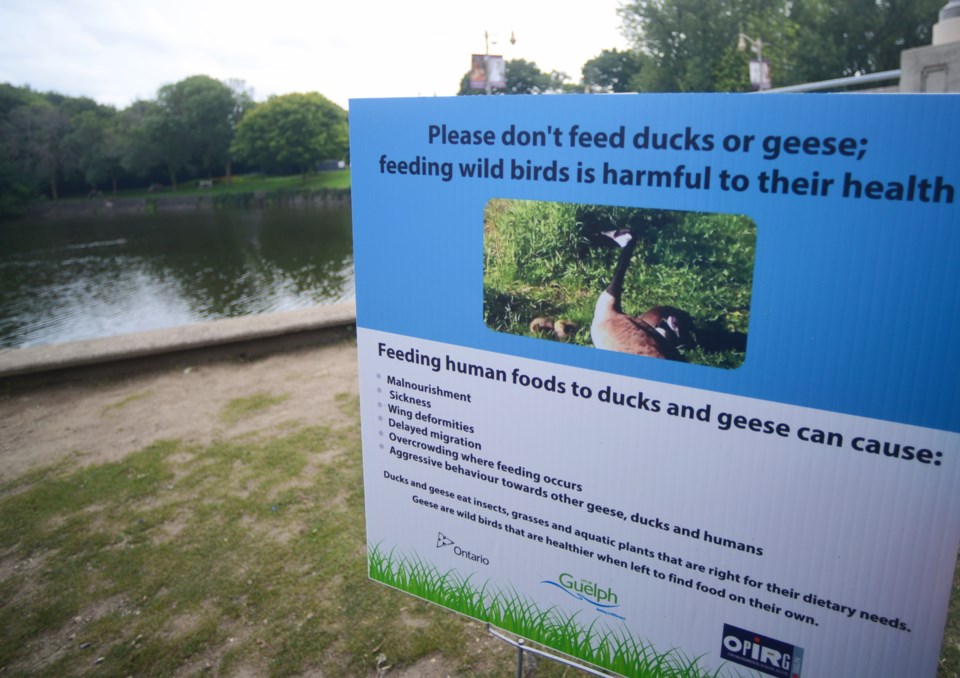New signs have been erected at Guelph's two busiest parks aimed at making it safer for both the people and water fowl that frequent them.
The temporary signs, erected recently at Royal City Park and Riverside Park, ask people to stop feeding the ducks and geese.
It was initiated by the OPIRG-Speed River Project partners with the city of Guelph River System Advisory Committee funded by the Great Lake Guardian Community Fund.
The birds eat insects, grass and water plants. Human food can be bad for them, says Heather Flaherty, the city's general manager of parks and recreation.
Feeding the birds can cause malnourishment, wing deformities, sickness, delayed migration and overcrowding in feeding areas, the signs point out.
Also of great concern is that it can lead to aggressive behaviour toward humans by the birds.
"I get a lot of complaints, year after year .... there's been an increasing number of residents complaining about geese being aggressive," Flaherty said.
"We certainly wanted to get them up in a couple of places, like Riverside and near The Boathouse, where that kind of activity is happening more, where people are feeding the geese.
The signs are temporary for now. More permanent signage is planned.
"Every little kid wants to feed the geese, but once they're aggressive ... that's when the complaints come up: 'what are you going to do about it?' Well, stop feeding them, that will help."
The signs are a pilot project in advance of a broader goose strategy staff will be bringing to city council this fall as part of an expansion package in the next budget deliberations.
"We'll be putting something together for a goose strategy," said Flaherty, but it takes time and money.
"You can't just do these one-off things. A sign here or there isn't going to reduce the goose population. There's many, many things we're going to be putting into place and staff have been working with other groups and organizations and their plans."
The project was done in cooperation with the Ontario Public Interest Research Group.
Flaherty said that the signs are a pilot project and the beginning of a broader goose control plan that staff will be bringing to council as part of an expansion package in the next city budget deliberations.
"We wanted to get the word out and just start with the public education part of it, in cooperation with other organizations wanting to do the same thing," Flaherty said.
Don't feed them at all, Flaherty said.
"They need to be able to find their own food and look after themselves," Flaherty said. "Everyone brings a loaf of bread to the park, but bread is not naturally what a goose would eat. We shouldn't be sharing our food with them."
There's actually a city bylaw prohibiting the feeding of wild animals.
The Boathouse area has already seen some efforts to mitigate the situation by replacing grassy areas near the water with mulch.
"We're trying to make it so they don't want to be near people, but they want to be near people because that's where they're fed," she said.
